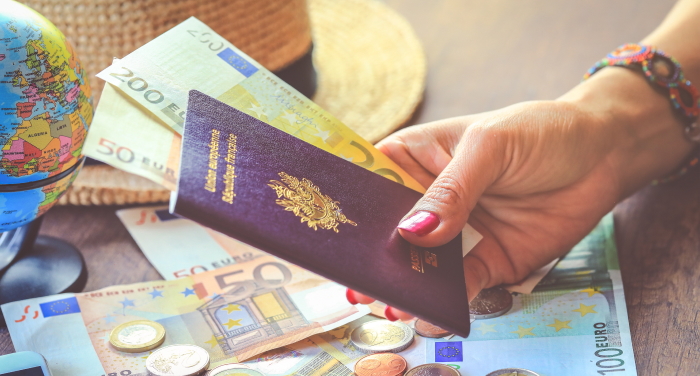As countries tighten up tax enforcement and regulation of the booming crypto business, cryptocurrency investors have begun to face an escalating assault of changes. To respond to these changes, crypto investors have started to look at their offshore choices. The crypto-rich are looking for a way to get a second passport in one of seven tax-haven states, all of which protect crypto assets from capital gains taxes.
How does it work?
Hundreds of people from the United States, the United Kingdom, Australia, and Canada apply for a second passport every year in one of seven countries: Saint Kitts and Nevis, Antigua and Barbuda, Dominica, Vanuatu, Grenada, Saint Lucia, and Portugal. It's a popular approach to attract international investment, especially in countries with limited natural resources.
This type of passport purchase plan is widespread in tax havens commonly known as International Finance Centers. As an example, citizenship in Saint Lucia can be obtained with a $100K donation, $250K government bond, or $300K investment (real estate). It's essentially a contribution to the country's long-term growth fund. As a result, people donate $100,000 or $150,000, plus some due diligence and government expenses.
Saint Kitts is the most popular programme for families, while Saint Lucia is the most popular programme for single applicants since it is one of the more affordable destinations with a reasonable application turnaround time.
How does the IRS treat Virtual Currency?
In the United States, the IRS considers virtual currency, such as bitcoin and other cryptocurrencies as property. This means bitcoin is taxed similarly to equities and real estate. As per the IRS the taxpayer’s basis in bitcoin is the amount paid for it, and when the taxpayer sells or trades that bitcoin, it is considered a taxable transaction.
The taxpayer's income or loss is calculated by removing the taxpayer's base from the sales price. Say a taxpayer spends $10,000 on a bitcoin and then sells it for $50,000, he would owe $40,000 in capital gains taxes, so a second passport does not fix their tax difficulties instantly. No matter where the crypto or the taxpayer is residing, if a taxpayer has a green card, is a U.S. citizen, or is a U.S. resident alien, the taxpayer owes U.S. tax on their crypto earnings. Even if they have dual citizenship, they still owe tax to the U.S. on their worldwide income. Hence, the American citizens would have to renounce their U.S. citizenship to be able to save that tax. However, the U.S. charges the citizens a fee to cut loose. When a U.S. taxpayer leaves the country, they are usually liable to a 'exit tax,' which is effectively a tax equal to what the person would pay if they sold all of their assets the day before giving up their citizenship.
Is it a legal practice?
There’s a difference between tax evasion and tax
avoidance. The problem arises when a person knowingly conceals
their income, but tax avoidance is perfectly legal. The
Internal Revenue Service and other tax authorities are
stepping up their efforts to track digital currency holdings
through centralised crypto exchanges. Their reach is global,
especially with the Foreign Account Tax Compliance Act. It is
now incredibly difficult for a U.S. citizen to hide assets
overseas due to a combination of informants, changes in the
rules, and tremendous international pressure.
The US Treasury Department has proposed comprehensive crypto
reporting, which will make it difficult to spend crypto as it
is to spend cash without being reported.
The IRS is also boosting up efforts in the United States to
track down noncompliant taxpayers using John Doe summonses - a
technique that permits the agency to obtain information on a
large number of anonymous taxpayers. The summonses were sent
to various crypto exchanges in this case in order to locate
anyone who transacted at least $20,000 in cryptocurrency
between 2016 and 2020. Serious crypto investors need to have a
defensive strategy in place especially if they’re
citizens of the United States.















